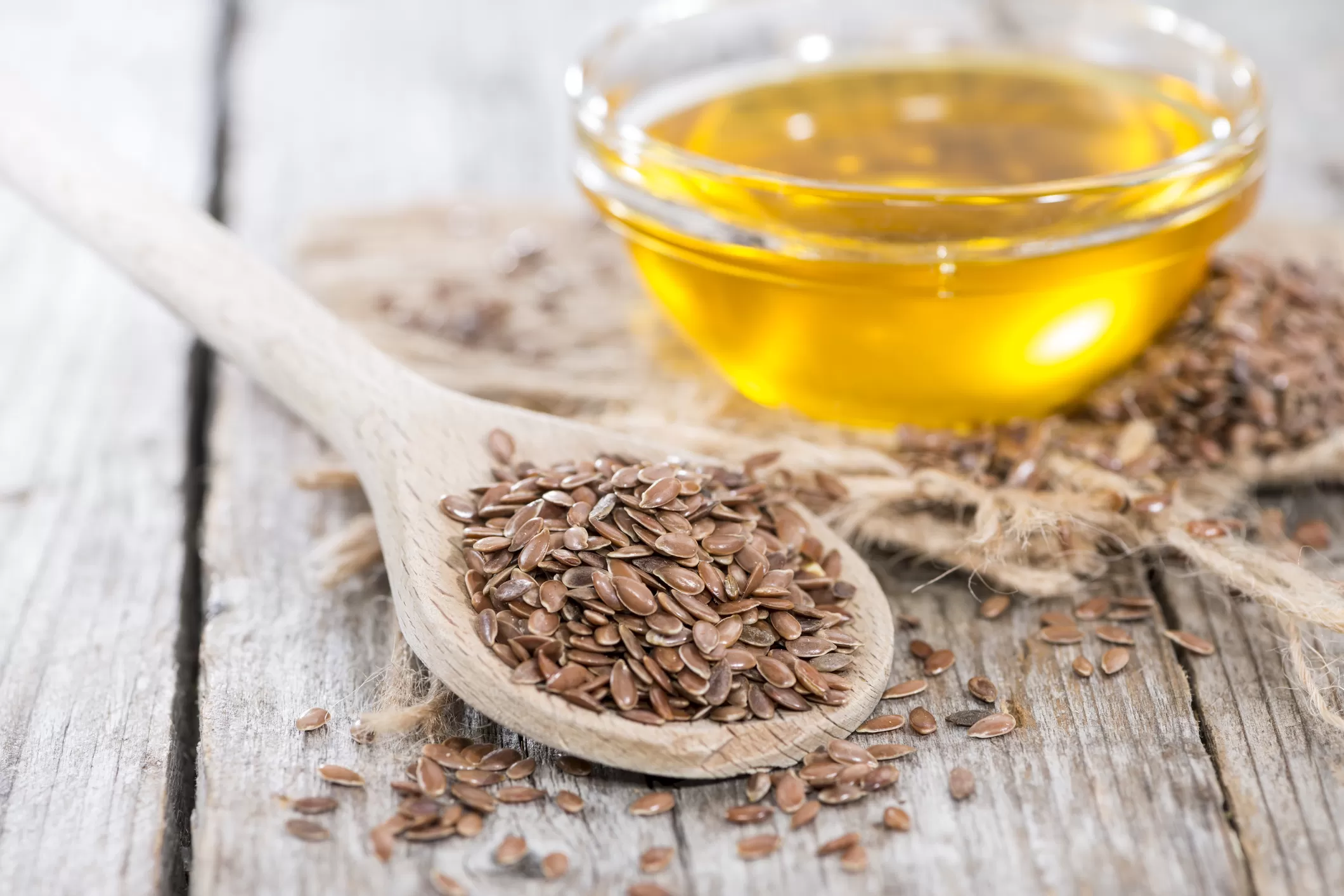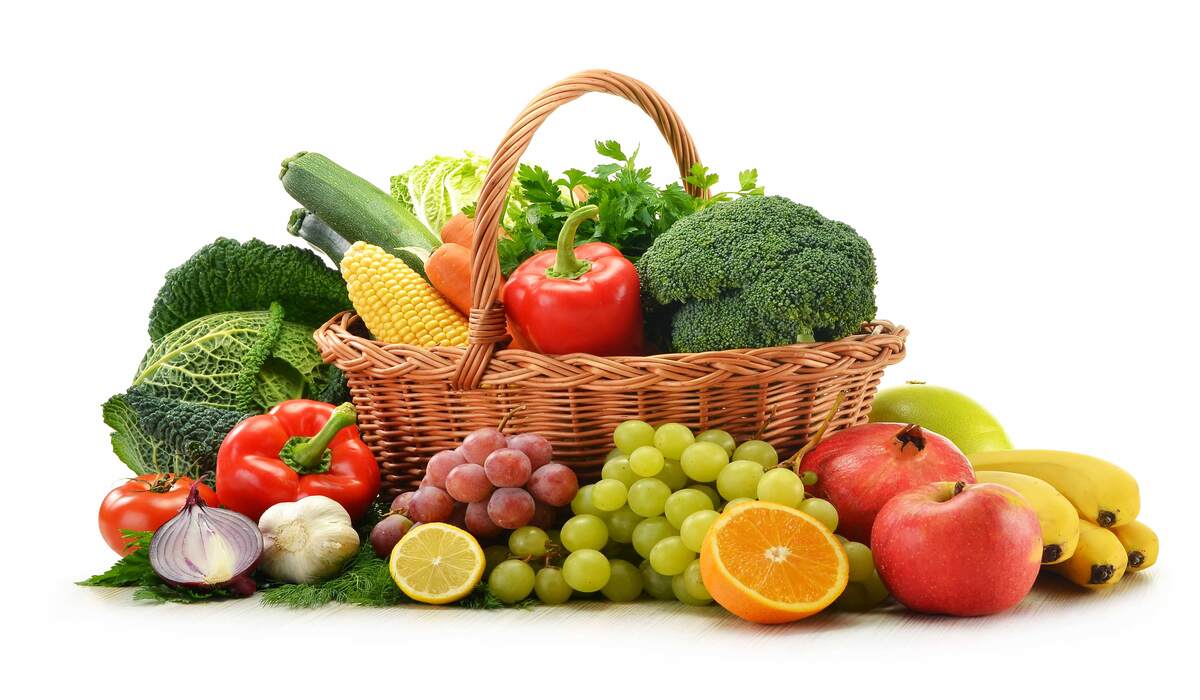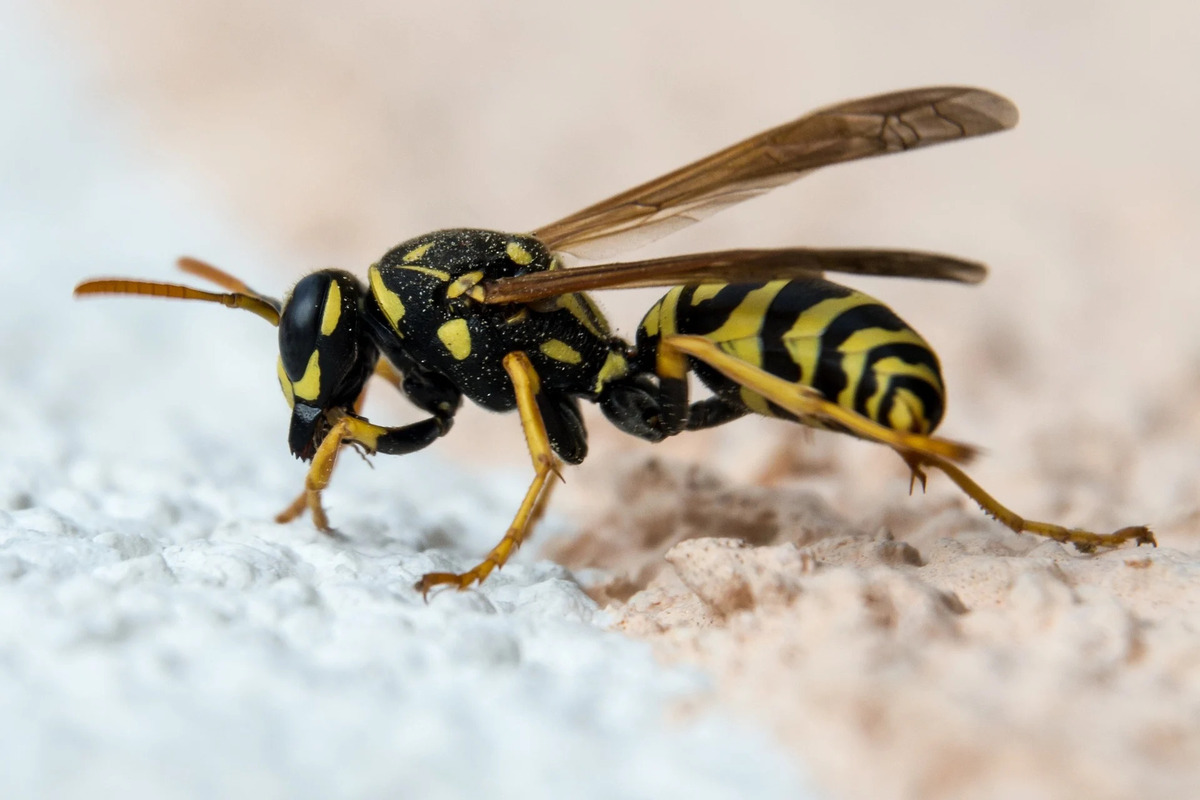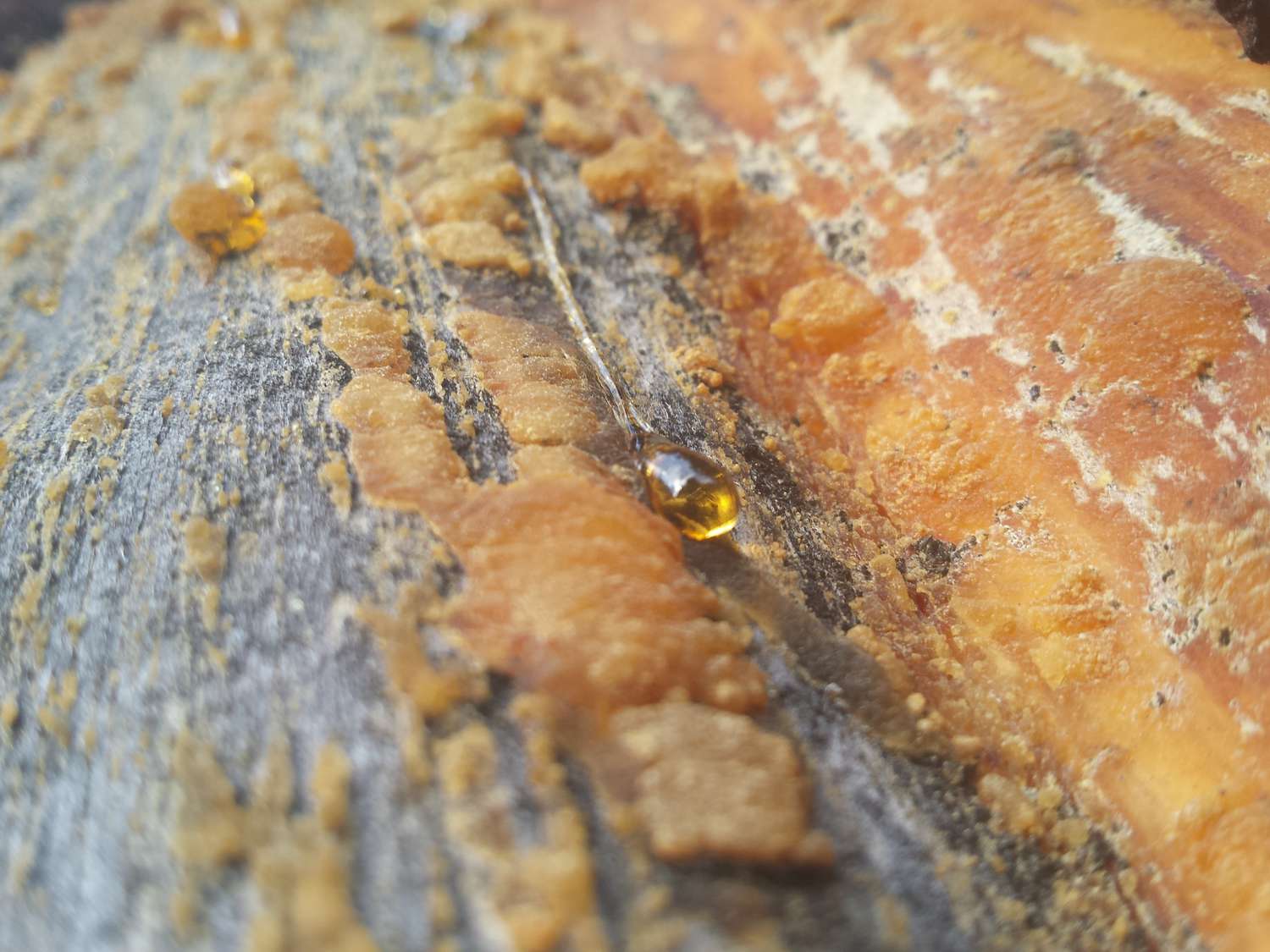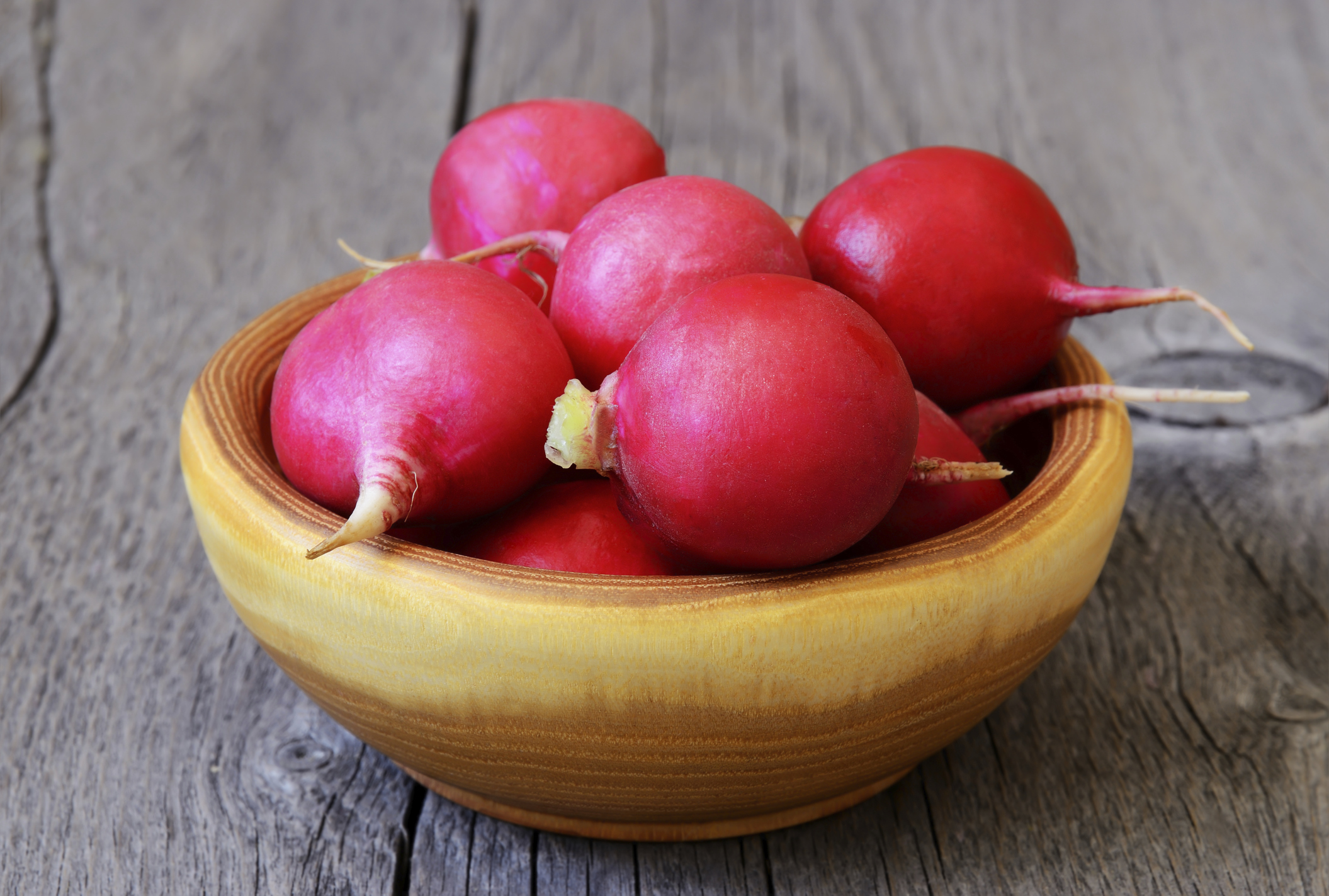Home>Types of Gardening>Edible Gardening>What Fruits Do Not Have Seeds
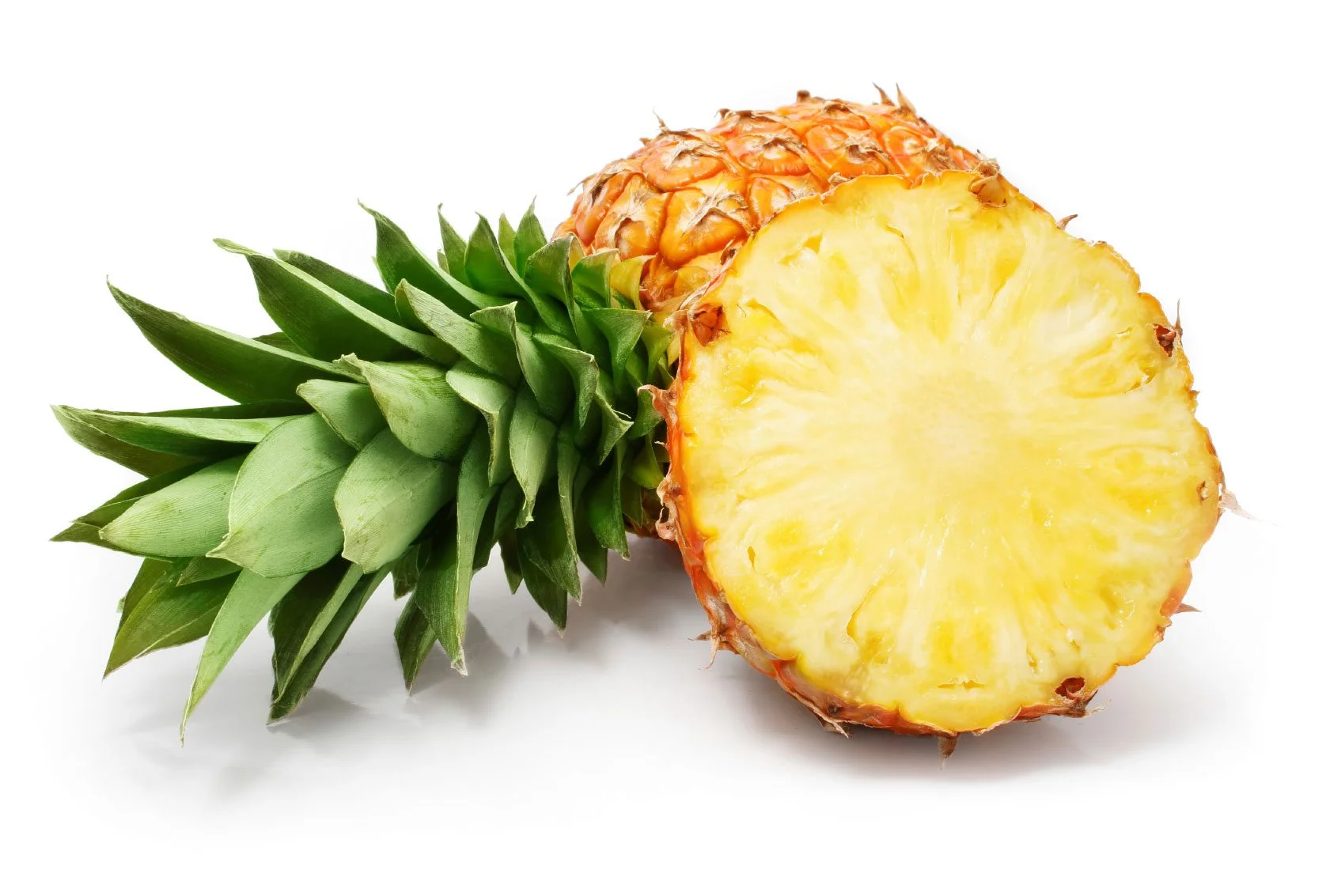

Edible Gardening
What Fruits Do Not Have Seeds
Published: September 19, 2023
Discover which fruits are seedless and perfect for edible gardening. Explore a variety of options for your garden and enjoy the benefits of hassle-free fruit cultivation.
(Many of the links in this article redirect to a specific reviewed product. Your purchase of these products through affiliate links helps to generate commission for Chicagolandgardening.com, at no extra cost. Learn more)
Table of Contents
Introduction
Welcome to the wonderful world of seedless fruits! If you’ve ever bitten into a juicy, sweet fruit and found yourself carefully spitting out the seeds, then you know the joy of enjoying a fruit without the hassle of dealing with tiny seeds. Seedless fruits have become increasingly popular due to their convenience and ease of consumption. They are not only delicious but also offer a variety of health benefits.
Seedless fruits are the result of careful breeding and genetic modifications. Through selective breeding, scientists and horticulturists have developed varieties that produce fruits without viable seeds. This has created a whole new category of fruits that bring joy to fruit lovers around the world, from young children to adults.
Whether you are looking to grow your own seedless fruits in your edible garden or simply want to learn more about the different types of seedless fruits available in the market, this article will provide you with the knowledge you need. We will explore some of the most popular seedless fruits and why they are a great addition to your diet.
So get ready to tantalize your taste buds with delectable seedless fruits that are not only easier to eat but also incredibly delicious!
Seedless Fruits
Seedless fruits offer a hassle-free eating experience without compromising on taste or nutrition. They are perfect for those who love the flavors of fruits but don’t enjoy dealing with seeds. Let’s dive into some of the most popular seedless fruits:
-
Bananas
One of the most widely consumed fruits, bananas are a fantastic option for seedless fruit lovers. Their creamy texture and sweet taste make them a versatile fruit. Bananas are rich in potassium, vitamin C, and dietary fiber. They make a great addition to smoothies, desserts, or enjoyed as a healthy snack.
-
Pineapples
Pineapple is a tropical fruit known for its juicy and tangy flavor. Fortunately, most pineapples are seedless, making them a convenient and delicious choice. Packed with vitamins, minerals, and the enzyme bromelain, pineapples are not only tasty but also offer several health benefits. Enjoy them fresh, grilled, or in refreshing tropical-inspired recipes.
-
Watermelons
Watermelons are a summer favorite, loved for their sweet and hydrating flesh. The good news for seed-haters is that many watermelon varieties are seedless. These large fruits are perfect for hot days, as they are mostly water and provide essential nutrients such as vitamins A and C. Serve them in slices, blend them into refreshing agua frescas, or use them in creative fruit salads.
-
Seedless grapes
Grapes are a classic and versatile fruit enjoyed by many. The good news is that there are several seedless grape varieties available, ranging from green to red to black. Seedless grapes are not only convenient to eat, but they are also a great source of antioxidants, vitamins, and minerals. Enjoy them as a snack, include them in fruit platters, or add them to salads for a burst of flavor.
-
Seedless oranges
Oranges are packed with vitamin C and are known for their refreshing citrus flavor. While most oranges contain seeds, there are seedless varieties available, making them a popular choice for those who prefer to enjoy their oranges without dealing with pesky seeds. They can be consumed as a snack, juiced, or used in a variety of recipes.
-
Seedless lemons
Lemons are widely used for their tart and tangy flavor in various culinary dishes and beverages. While lemons typically contain seeds, you can find seedless lemon varieties that make juicing and squeezing a breeze. Enjoy seedless lemons in refreshing lemonade, make zesty dressings and marinades, or use them to add a citrusy kick to your favorite dishes.
-
Seedless limes
Limes are another citrus fruit that adds a burst of tanginess to many dishes and drinks. Seedless lime varieties are available, making it much easier to extract the juice for cooking and garnishing. Enjoy seedless limes in cocktails, squeeze them over grilled meats or seafood, or use them to flavor sauces and dressings.
-
Seedless apples
Apples are a crisp and refreshing fruit loved by many. While most apples contain seeds, there are seedless apple varieties that offer a convenient eating experience. They are perfect for enjoying fresh, adding to salads, or using in baked goods like pies and crisps.
-
Seedless cherries
Cherries are a delightful summer fruit with a naturally sweet taste. While most cherries have seeds, some varieties are specifically bred to be seedless, making them easier to enjoy. Seedless cherries can be eaten fresh, added to desserts, or used in savory dishes for a unique burst of flavor.
-
Seedless strawberries
Strawberries are a favorite among many and are widely used in a variety of dishes, from sweet desserts to savory salads. While most strawberries have small seeds on their outer skin, there are seedless varieties available, making them hassle-free to eat. Enjoy seedless strawberries in smoothies, as toppings for pancakes or yogurt, or simply savored on their own.
Bananas
Bananas are one of the most popular and widely consumed fruits worldwide. Known for their creamy texture, sweet taste, and convenient packaging, bananas are a staple fruit in many households. The best part for seedless fruit enthusiasts is that bananas are naturally seedless, making them a hassle-free and enjoyable snack or ingredient in various culinary creations.
In addition to their delicious flavor, bananas offer a range of health benefits. They are an excellent source of potassium, a mineral that plays a vital role in heart health, blood pressure regulation, and muscle function. Bananas are also rich in vitamin C, which supports a healthy immune system and aids in collagen production for healthy skin.
Furthermore, bananas provide dietary fiber, which promotes digestion and helps maintain a healthy gut. As a low-calorie fruit, bananas are a smart choice for those watching their calorie intake or looking to manage their weight. They are also a great source of natural energy, making them an ideal fruit for athletes or anyone needing a quick pick-me-up.
One of the many perks of bananas is their versatility. They can be enjoyed on their own as a convenient grab-and-go snack or incorporated into a wide range of recipes. Bananas can be sliced over cereal or oatmeal, blended into smoothies for added creaminess, or mashed and used as a replacement for eggs in baking. They also add a natural sweetness to desserts like banana bread or can be grilled for a caramelized treat.
If you’re looking to grow your own bananas in your edible garden, it’s important to consider the right growing conditions. Bananas thrive in warm tropical climates and require well-draining soil with regular watering. They are typically propagated from “suckers,” which are the smaller plants that grow from the base of the parent banana tree.
Once your banana plants start producing fruits, it’s an exciting time to enjoy the harvest. Harvesting bananas at the right time is crucial, as they should be picked when they are fully ripe but not overripe. Enjoy your homegrown bananas for a truly rewarding and satisfying experience.
Pineapples
Pineapples are a tropical fruit known for their juicy, sweet, and tangy flavor. They are a delightful treat that brings a taste of the tropics to your palate. The good news for seedless fruit enthusiasts is that most commercially available pineapples are seedless, making them convenient and enjoyable to eat.
Aside from their delicious taste, pineapples offer a host of health benefits. They are rich in vitamin C, a powerful antioxidant that boosts the immune system, promotes collagen production, and supports overall skin health. Pineapples also contain an enzyme called bromelain, which aids in digestion, reduces inflammation, and may have potential anti-cancer properties.
When selecting a pineapple, look for one that is heavy for its size, has a fragrant aroma at the stem end, and has a golden-yellow color. To enjoy the fruit, simply remove the spiky outer skin and core, and slice the sweet and succulent flesh into rings or chunks.
Pineapples can be eaten on their own as a refreshing snack or incorporated into a variety of dishes. They add a tropical flair to fruit salads, smoothies, and desserts. Grilling pineapple slices brings out their natural sweetness and caramelizes the fruit, making it an excellent addition to savory dishes like grilled meats or kebabs.
If you’re feeling adventurous and want to grow your own pineapples, you’ll need a warm and sunny climate. Pineapples thrive in tropical or subtropical regions where temperatures range between 60-90°F (15-32°C). They can be grown from the top of a harvested pineapple, which is also known as the crown. Simply remove all the fruit flesh from the crown and allow it to dry for a few days before planting it in well-drained soil.
It’s important to note that growing pineapples can be a long and patient process. It can take up to two years for a pineapple plant to bear fruit. However, if you’re willing to put in the effort, there’s nothing quite like the satisfaction of enjoying homegrown pineapples straight from your own garden.
Watermelons
Watermelons are the quintessential summer fruit, loved for their refreshingly sweet and hydrating flesh. While traditionally watermelons are known for their abundance of seeds, there are now seedless varieties available that provide a hassle-free eating experience.
Aside from being a delicious treat, watermelons offer numerous health benefits. They are incredibly hydrating, consisting of about 92% water, making them a great choice for staying hydrated during hot summer days. Watermelons are also rich in lycopene, a powerful antioxidant that has been linked to a reduced risk of certain types of cancer and improved heart health.
In addition to lycopene, watermelons contain vitamins A and C, which contribute to healthy skin and a strong immune system. They are also a good source of electrolytes like potassium and magnesium, which help maintain proper hydration and support muscle function.
Enjoying watermelon is as simple as cutting it into slices or chunks and devouring the juicy, sweet flesh. The seedless varieties make it even easier to enjoy without the need to spit out or deal with seeds. Watermelon is a versatile fruit that can be enjoyed in many ways. You can use it as a base for refreshing agua frescas, blend it into smoothies for a tropical twist, or dice it up and add it to fruit salads for a burst of flavor and color.
If you’re interested in growing watermelons in your edible garden, there are a few things to consider. Watermelons prefer warm temperatures and ample sunlight, so make sure to choose a location in your garden that receives full sun. They also require well-draining soil and regular watering to thrive.
Watermelons can be grown from seeds or transplants. When planting from seeds, it’s important to space them out properly to allow room for the vines to spread. This will prevent overcrowding and promote healthy plant growth. It’s also a good idea to provide support for the watermelon vines, such as a trellis or stakes, to keep them off the ground and protect the fruits from rotting.
With a little bit of patience and care, you can enjoy the rewards of growing your own seedless watermelons. There’s nothing quite like the satisfaction of biting into a fresh, homegrown watermelon on a hot summer day.
Seedless Grapes
Grapes are a popular and versatile fruit enjoyed by many. While traditionally grapes have seeds, there are now several seedless grape varieties available that offer a convenient and enjoyable eating experience.
Seedless grapes are not only hassle-free to consume but also pack a nutritional punch. They are rich in vitamins C and K, as well as antioxidants that help protect against cell damage and boost overall health. Grapes also contain polyphenols, which have been linked to a range of health benefits, including improving heart health and reducing inflammation.
Seedless grapes come in various colors, including green, red, and black. Each color has its own unique flavor profile, ranging from crisp and slightly tart to sweet and juicy. This variety makes seedless grapes a versatile fruit that can be enjoyed on their own as a snack or incorporated into a variety of dishes.
Seedless grapes are a popular addition to fruit platters and cheese boards, as they add a burst of sweetness and color. They can also be used to make juices, jams, jellies, and even wine. Frozen seedless grapes make a refreshing and healthy alternative to sugary frozen treats on hot summer days.
Growing seedless grapes in your own garden can be a rewarding experience. Grapes are perennial plants that require a sunny location, well-drained soil, and support such as a trellis or arch to help them climb. They also need regular pruning to maintain their shape and encourage proper fruiting.
When selecting grape varieties for your garden, look for those specifically labeled as seedless. Some popular seedless grape varieties include Thompson Seedless (green), Flame Seedless (red), and Black Corinth (black). Keep in mind that grapes are typically propagated through cuttings rather than seeds.
Once you’ve established your grapevine, it may take a few years for it to start producing a bountiful harvest. However, the wait is well worth it. There’s nothing quite like the satisfaction of picking and enjoying sun-ripened, homegrown seedless grapes straight from your own garden.
Seedless Oranges
Oranges are a beloved citrus fruit known for their refreshing and zesty flavor. While most oranges contain seeds, there are seedless varieties available that offer a convenient and enjoyable eating experience.
Seedless oranges, also known as navel oranges, are characterized by a small, underdeveloped second fruit within the main fruit. This second fruit is undeveloped and seedless, making it easy for citrus lovers to enjoy a sweet and juicy orange without worrying about spitting out seeds.
Not only are seedless oranges delicious, but they also provide a range of health benefits. Oranges are packed with vitamin C, a powerful antioxidant that boosts the immune system and supports overall health. They also contain dietary fiber, which aids in digestion and helps maintain a healthy gut.
Seedless oranges are a versatile fruit that can be enjoyed in various ways. They can be peeled and eaten fresh, juiced for a refreshing beverage, or used in a variety of recipes, from salads and salsas to marinades and desserts. The bright and tangy flavor of seedless oranges adds a burst of citrusy goodness to any dish.
When it comes to growing seedless oranges in your edible garden, it’s important to choose the right orange tree variety and provide the proper growing conditions. Navel oranges prefer a warm, subtropical climate with full sun exposure. They also require well-draining soil and regular watering.
Seedless oranges are typically grafted onto rootstocks to ensure consistency and seedlessness. Consider consulting with a local nursery or horticulturist to select the best seedless orange tree variety for your region.
Once your seedless orange tree is established, it may take a few years for it to bear fruit. However, the wait is well worth it. Imagine the satisfaction of plucking fresh, ripe oranges from your own backyard and enjoying their sweet and juicy goodness.
Whether you’re looking for a convenient and delicious snack or a versatile citrus fruit for your culinary creations, seedless oranges are a fantastic choice. Their easy-to-eat nature and vibrant flavor make them a beloved favorite for citrus enthusiasts of all ages.
Seedless Lemons
Lemons are widely known for their tart and tangy flavor, which adds a delightful zest to various dishes and beverages. While traditional lemons have small seeds scattered throughout their flesh, there are now seedless lemon varieties available that offer a convenient and hassle-free citrus experience.
Seedless lemons, also known as seedless Lisbon lemons, are a fantastic option for those who love the flavor of lemons but don’t want to deal with the inconvenience of removing the seeds. These seedless lemons have been selectively bred to reduce or eliminate the formation of viable seeds, resulting in a fruit that is easier and more pleasant to consume.
Seedless lemons offer the same tangy flavor and bright acidity as regular lemons. They are rich in vitamin C, which boosts the immune system and promotes healthy skin. They also provide a good amount of dietary fiber, which aids in digestion and supports overall gut health.
Seedless lemons can be used in a wide range of culinary applications. They can be squeezed to obtain fresh lemon juice, which adds a zesty kick to dressings, marinades, and sauces. The juice can also be used in beverages like lemonade or infused water for a refreshing twist. The peel of seedless lemons can even be used to add a burst of flavor to baked goods and desserts.
When it comes to growing seedless lemons in your own garden, the process is similar to growing regular lemon trees. Lemon trees thrive in warm, sunny climates and prefer well-draining soil. They can be grown from seeds, although it is more common to propagate lemon trees through cuttings or grafting to ensure consistent quality and seedlessness.
It’s important to provide regular watering and occasional fertilization to support the growth of healthy, productive lemon trees. With time and proper care, you will be rewarded with a bountiful harvest of seedless lemons to enjoy in your culinary creations.
Whether you’re using seedless lemons for their tart juice or their fragrant zest, they are a versatile and hassle-free option for adding a citrusy punch to your favorite recipes. So go ahead and embrace the tangy goodness of seedless lemons in your cooking and enjoy the convenience of a seedless citrus experience.
Seedless Limes
Limes are beloved for their tangy and refreshing flavor, which adds a zesty kick to countless dishes and beverages. While traditional limes contain small seeds, there are now seedless lime varieties available that offer a convenient and enjoyable citrus experience.
Seedless limes, also known as seedless Persian limes, are a fantastic choice for those who love the tangy taste of limes but prefer not to deal with the hassle of removing seeds. These seedless varieties have been selectively bred to minimize or eliminate the formation of viable seeds, resulting in a fruit that is easy and enjoyable to use in both sweet and savory applications.
Seedless limes are packed with fresh and zesty flavor, making them a popular ingredient in various cuisines around the world. They are an excellent source of vitamin C, which boosts the immune system and supports overall health. Limes also contain antioxidants that help protect against cell damage and inflammation.
Seedless limes can be used in a multitude of ways in the kitchen. They can be squeezed to obtain fresh lime juice, which adds a tangy and bright flavor to cocktails, marinades, dressings, and sauces. Lime zest, which is the outermost layer of the lime peel, can also be used to add a fragrant and citrusy kick to baked goods, desserts, and savory dishes.
When it comes to growing seedless limes in your garden, the process is similar to growing regular lime trees. Lime trees thrive in warm, tropical climates and prefer well-drained soil. They require regular watering and benefit from occasional fertilization to support healthy growth and fruiting.
Whether you’re growing seedless limes in your garden or purchasing them from the store, incorporating these tangy fruits into your culinary creations is a breeze. Their seedless nature eliminates the need for seed removal, saving you time and effort in the kitchen.
So go ahead and experiment with seedless limes in your favorite cocktails, dressings, marinades, or any recipe where you desire a tangy and zesty flavor. Enjoy the convenience of seedless limes without compromising on the vibrant and refreshing taste they bring to your dishes.
Seedless Apples
Apples are a beloved fruit known for their crisp texture and sweet-tart flavor. While most apples contain seeds, there are now seedless apple varieties available that offer a hassle-free eating experience.
Seedless apples, also known as “stoneless” apples, are a breakthrough in apple breeding technology. These varieties have been developed to produce apples without viable seeds, making them ideal for those who prefer the taste and texture of apples without the crunch of seeds.
Seedless apples offer the same nutritional benefits as regular apples. They are a good source of dietary fiber, which aids in digestion and helps maintain a healthy gut. Apples are also rich in antioxidants, vitamins, and minerals, making them a nutritious choice for a snack or ingredient in various dishes.
Seedless apples are versatile and can be used in a wide range of culinary applications. They can be enjoyed fresh as a convenient and healthy snack or incorporated into salads for a refreshing crunch. Seedless apples are also great for baking, as the absence of seeds means less preparation time and a smoother texture in pies, cakes, and other apple-infused desserts.
If you’re considering growing seedless apples in your edible garden, it’s important to choose the right apple tree variety. Look for varieties specifically labeled as seedless or stoneless. Keep in mind that seedless apples are typically propagated through grafting rather than growing from seeds.
Like other apple trees, seedless apple trees require full sun exposure and well-draining soil. They will benefit from regular watering and proper pruning to maintain their shape and maximize fruit production. It’s also important to consider pollination requirements, as many apple varieties require cross-pollination with compatible apple trees to produce fruit.
By growing your own seedless apples, you can enjoy the satisfaction of harvesting and biting into fresh, homegrown fruit. Experience the unique flavor and texture of seedless apples while taking pride in your culinary creations, knowing that you played a part in their growth and development.
So whether you’re enjoying a crisp, seedless apple as a snack or incorporating them into your favorite recipes, seedless apples provide a convenient and enjoyable way to savor the distinct flavors of this beloved fruit.
Seedless Cherries
Cherries are a delightful and summery fruit known for their vibrant color, juicy flesh, and sweet-tart taste. Traditional cherries come with seeds nestled in the center, but there are now seedless cherry varieties available that offer a hassle-free cherry eating experience.
Seedless cherries, also known as pitless cherries, are a result of careful breeding and genetic selection. These cherry varieties have been developed to produce fruits that are devoid of seeds or have tiny, undeveloped seeds that are nearly undetectable. This makes seedless cherries a fantastic choice for those who love cherries but don’t want to deal with the inconvenience of spitting out or removing seeds.
In addition to their convenience, seedless cherries offer the same delicious flavor and nutritional benefits as regular cherries. They are packed with antioxidants, vitamins, and minerals that contribute to overall health and well-being. Cherries are particularly known for their anti-inflammatory properties and their ability to support heart health.
Seedless cherries can be enjoyed in a variety of ways. They make the perfect on-the-go snack, whether you’re enjoying them straight from a bowl or packing them in a lunchbox. Seedless cherries also lend themselves well to desserts like cherry pies, tarts, and cobblers. Their pitless nature eliminates the need for pitting, saving you time and effort in the kitchen.
If you’re interested in growing seedless cherries in your edible garden, it’s important to select the right cherry tree variety. Look for varieties labeled as seedless or pitless cherries. Keep in mind that cherries are primarily propagated through grafting rather than from seeds.
Cherry trees require a sunny location with well-draining soil. They also benefit from regular watering, especially during dry periods. It’s important to note that most cherries require pollination from a compatible cherry tree to produce fruit, so consider the pollination requirements of the specific variety you choose.
Imagine the joy of strolling through your garden, plucking ripe, seedless cherries from your own cherry tree. You can indulge in these sweet and juicy delights right at the source, knowing that you played a part in growing these delectable fruits. Whether you’re snacking on them, incorporating them into your favorite dishes, or preserving them for future use, seedless cherries offer a convenient and enjoyable way to enjoy the flavors of this beloved summer fruit.
Seedless Strawberries
Strawberries are a beloved fruit known for their vibrant color, juicy texture, and deliciously sweet flavor. While traditional strawberries have tiny seeds on their outer skin, there are seedless strawberry varieties available that offer a hassle-free and enjoyable strawberry eating experience.
Seedless strawberries, also known as “achenes,” are a result of selective breeding and genetic modification. These varieties produce strawberries with reduced or no seeds, making them easier and more pleasant to eat. Seedless strawberries offer the same delightful taste and nutritional benefits as their seeded counterparts.
Strawberries, whether seedless or not, are packed with antioxidants, vitamins, and minerals. They are an excellent source of vitamin C, which boosts the immune system and supports collagen production for healthy skin. Strawberries also contain dietary fiber, which aids in digestion and helps maintain a healthy gut.
Enjoying seedless strawberries couldn’t be simpler. They can be enjoyed on their own as a healthy and refreshing snack or added to various culinary creations. Mix them into salads, blend them into smoothies, or incorporate them into baked goods like pies, tarts, and cakes. The absence of seeds means there’s no need to spend time hulling or removing seeds – simply savor the sweet essence of these luscious berries.
If you’re considering growing seedless strawberries in your edible garden, it’s important to select the right variety. Look for seedless strawberry plants, such as the popular “Everbearing” or “Day-neutrals,” which produce an abundance of delicious fruits throughout the growing season.
Strawberries need a sunny spot in your garden with well-draining soil. They can be grown in containers or raised beds if space is limited. Regular watering and proper spacing will help promote healthy growth, and applying mulch can help retain moisture while suppressing weeds.
Imagine the satisfaction of harvesting plump, seedless strawberries right from your garden. With proper care and attention, you can enjoy the reward of homegrown strawberries that are not only flavorful but also free from pesky seeds.
Seedless strawberries offer a convenient and delightful way to enjoy the sweet and juicy taste of this beloved fruit. Whether you’re snacking on them straight from the bowl or incorporating them into your favorite recipes, seedless strawberries are a delicious and hassle-free addition to your fruit collection.
Conclusion
Seedless fruits offer a convenient and enjoyable eating experience for fruit lovers everywhere. From bananas, pineapples, and watermelons to grapes, oranges, lemons, limes, apples, cherries, and strawberries, there are plenty of options to choose from when it comes to seedless varieties. These fruits not only save you the hassle of dealing with pesky seeds but also provide a wide range of flavors and health benefits.
Seedless fruits have been selectively bred and genetically modified to reduce or eliminate the presence of seeds, resulting in fruits that are easier to eat and enjoy. They retain the same delicious taste and nutritional benefits as their seeded counterparts. Whether you bite into a crispy seedless apple, enjoy a tangy seedless lemon in your favorite recipe, or savor the sweet juice of a seedless watermelon on a hot summer day, these fruits offer a hassle-free and delightful experience.
When it comes to growing seedless fruits in your edible garden, make sure to select the appropriate varieties and provide the proper growing conditions. Pay attention to factors such as sunlight, water requirements, and soil quality to ensure your seedless fruit plants thrive and produce abundant harvests in due time.
By incorporating seedless fruits into your diet, you can enjoy the flavors and health benefits of fruits without the inconvenience of dealing with seeds. Whether you’re snacking on them, adding them to salads, blending them into smoothies, or using them in various culinary creations, seedless fruits offer versatility and convenience in the kitchen.
So, whether you’re a fan of bananas, pineapples, watermelons, grapes, oranges, lemons, limes, apples, cherries, or strawberries, seedless varieties are a fantastic option. Explore the wide variety available and relish in the joy of enjoying these convenient and delicious fruits in your everyday life. Embrace the seedless revolution and enhance your edible gardening experience with these delectable and hassle-free fruits.


